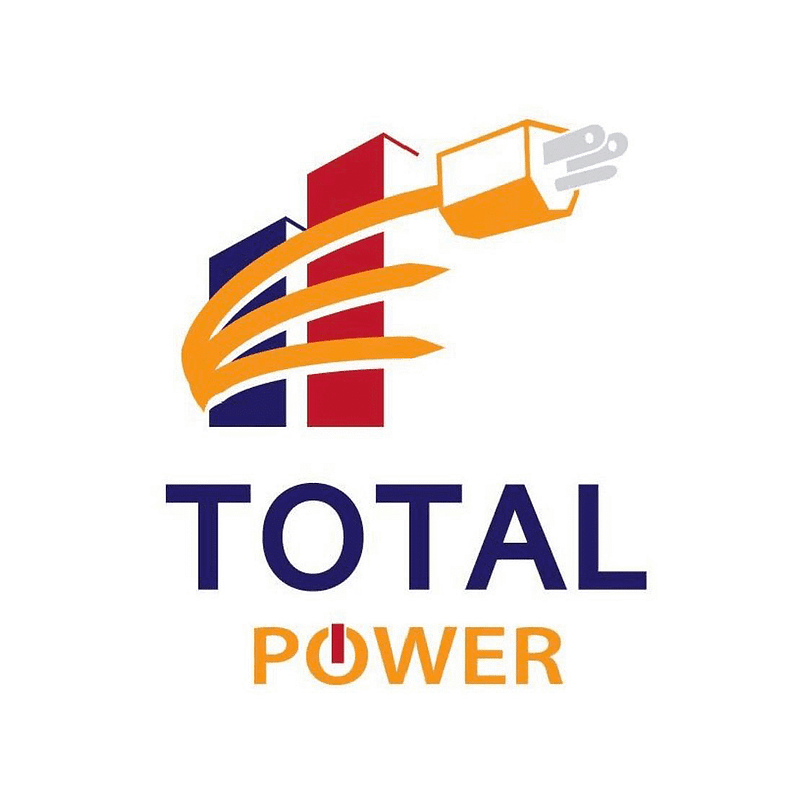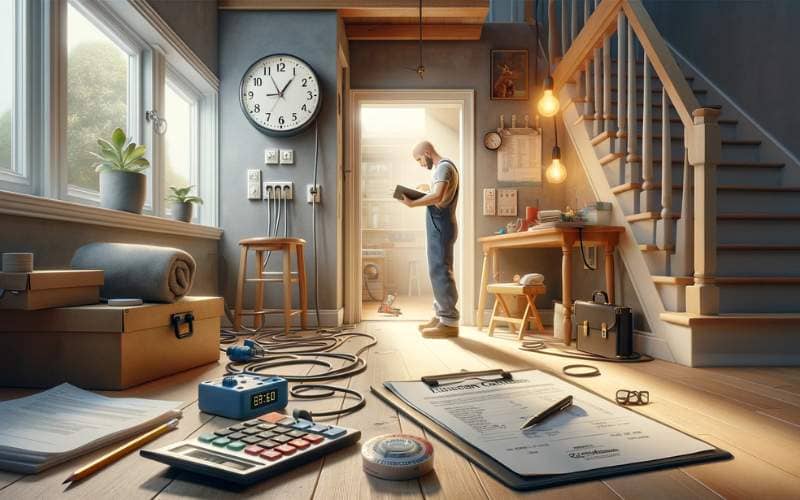What Happens During a Home Electrical Inspection
Written by Total Power Energy Team
Published:
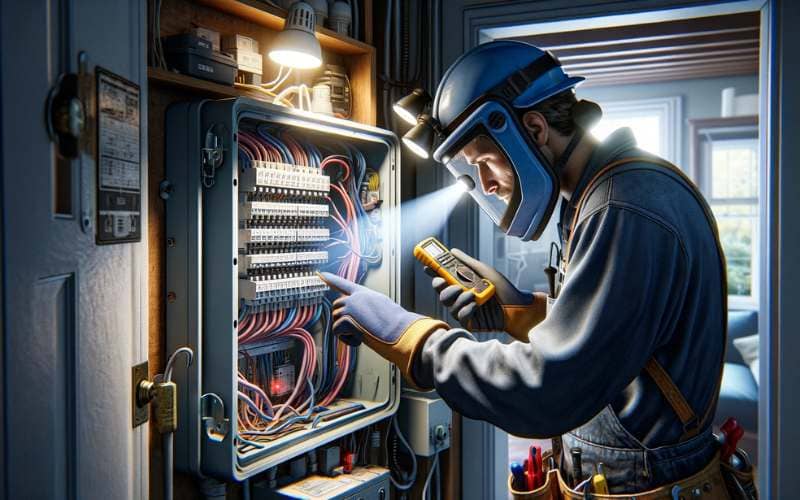
As homeowners, we often take the seamless functioning of our electrical system for granted.
However, Homes with a recent electrical inspection are 25% less likely to experience an electrical fire, highlighting the importance of regular check-ups on your home’s electrical system.
Let’s understand what happens during a home electrical inspection, emphasizing its importance in maintaining electrical safety and efficiency.
When Do You Need an Electrical Inspection
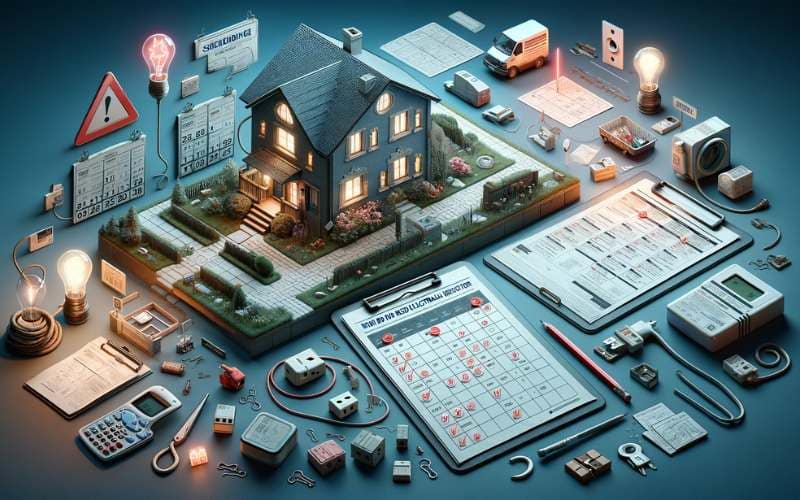
There are several occasions when an electrical inspection becomes necessary:
- Buying/Selling a Home: Ensuring the Power system is up to code and safe is crucial during real estate transactions.
- Routine Maintenance: Regular checks can prevent significant issues and maintain electrical safety.
- Safety Concerns: If you notice any signs of electrical problems, such as flickering lights or tripping breakers, it’s time to have an inspection.
What Does an Electrician Look For During an Electrical Inspection?
A professional electrician or inspector will focus on various elements, including:
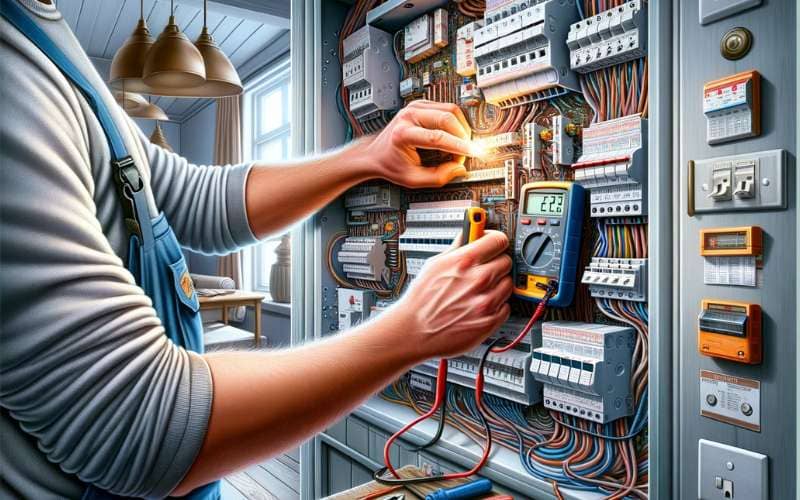
- Safety of Electrical Components: Ensuring all components meet safety standards.
- Electrical Panel: Checking the condition and functionality of the main electrical panel.
- Wiring: Assessing the condition of electrical wiring and its compliance with the current electrical code.
- Breakers and Fuses: Ensuring Electric distribution panel and fuses are correctly rated and functioning.
- Grounding Systems: Verifying that the grounding is adequate for safety.
- GFCIs and AFCIs: Testing ground fault circuit interrupters and arc-fault circuit interrupters for proper operation.
What happened during an electrical inspection | A Step-by-Step Breakdown

Initial Assessment
The initial inspection involves a preliminary overview of the home’s electrical system.
The inspector evaluates the age and general condition of the system, setting the stage for a more detailed examination.
Visual Examination
A comprehensive visual inspection is conducted to identify any visible signs of damage, wear, or non-compliance with current standards.
This includes looking at electrical panels, wiring, and electrical installations.
Testing and Measurements
The electrician conducts various tests, including voltage measurements and checking for proper grounding.
This step is critical in ensuring the Electrical supply network operates safely and efficiently.
Evaluation of Electrical Panels
The condition and operation of the main Circuit breaker panel are scrutinized, ensuring all breakers function correctly and are adequately labelled.
Grounding and Bonding
This involves verifying that the electrical system has proper grounding and bonding to minimize the risk of electric shock and other hazards.
Inspection of Outlets and Switches
Outlets and switches are tested for functionality and safety, including GFCIs in areas with moisture, like bathrooms and kitchens.
Surge Protection
The electrician will check for adequate surge protection to safeguard appliances and electronics against voltage spikes.
Electricity Leak Inspection
This step involves looking for potential electrical short scenarios or leakages that could pose a fire hazard.
Assessment of Electrical Fixtures and Appliances
Ensuring fixtures and appliances are properly installed and functioning correctly is part of the inspection process.
Inspection of Wiring and Connections
The electrician examines electrical cables and connections, looking for outdated, damaged, or improperly installed wires.
Post-Inspection Communication
After the inspection, the electrician discusses their findings with the householder, addressing any concerns and suggesting next steps.
Documentation and Reporting
After the final inspection, the electrician provided A detailed report, recommendations, and any necessary repairs or improvements.
Duration and Cost of an Electric Inspection
The length of an Home Electrical Safety Inspection typically varies based on the size and complexity of the electrical system.
For a typical single-family home, inspection usually falls within 2 to 4 hours. The cost can also fluctuate depending on various factors.
On average, a home electrical inspection costs around $200 to $500. However, this range can vary, particularly for larger homes or those with more complex Power Distribution Networks.
Householder needs to consider these factors when budgeting for an inspection.
Benefits of Regular Electrical Inspections
Regular inspections are vital for any homeowner.
Here’s why they’re so important:
- Safety First: Inspections help prevent dangerous situations like electrical fires or shocks. They find problems like old wiring or loose connections, keeping your home safe.
- Staying Up to Date: Electrical rules change over time. Inspections make sure your home follows the latest safety standards, which is especially important if you want to sell your house later.
- Catching Problems Early: It’s better to find and fix a small problem now than deal with a big issue later. Regular checks can spot these early on, saving you time and money.
- Saving Energy: An electrician can find ways to make your home more energy-efficient, which can lower your bills.
- Long-Lasting System: Keeping your electrical system in good shape will last longer. Regular checks help avoid wear and tear.
- Peace of Mind: Knowing a professional has checked your home and everything is okay gives you comfort and peace of mind.
- Insurance Benefits: Some insurance companies might offer a better deal if your home is regularly checked for Power System Safety.
- Adding Value: A well-maintained Power system can be a big selling point if you ever want to sell.
Bottom line
Regular electrical inspections are more than just a precaution; they’re a fundamental aspect of responsible homeownership.
They ensure that the heart of your house’s electrical system beats strongly and safely, guarding against potential dangers and inefficiencies.
So, remember to inspect your electrical system regularly and rely on professional electricians to maintain the health and safety of your home.
Frequently Asked Questions
What are the skills and knowledge needed for electrical Audit?
An electrical inspector must comprehensively understand the Power system, codes, and safety practices.
They should be proficient in identifying potential hazards, understanding complex wiring systems, and using specialized testing equipment.
What Happens After the Inspection?
Following the inspection, if any issues are found, the inspector will provide a detailed report with recommendations for repairs or upgrades.
Homeowners should then take necessary actions to address these issues to ensure the Power system is safe and compliant.
How often should a home electric system be inspected?
It’s recommended that home electric systems in most homes be inspected every three to five years.
More frequent inspections may be necessary for older homes or properties with known electrical issues.
What can lead to a failed electrical inspection?
Common reasons for a failed inspection include:
- Outdated or unsafe wiring.
- Non-compliant electrical installations.
- Improper grounding.
- Faulty Circuit breaker panel.
Are there any specific signs that indicate the need for an immediate electric audit?
Signs such as frequent breaker trips, overheating appliances, shocks from electrical devices, or burning smells from outlets indicate an immediate need for an electrical safety inspection.
Total Power energy content Team
Total Power Energy content team provide valuable tips and guidance on electrical information.
Our writers are experienced in the electrical field and produce high-quality content such as electrical safety, installation, repair, etc.
Our goal? To help you work safely and smartly. Our advice is easy to follow whether you’re at home or on the job. Stay safe and confident with our help!
